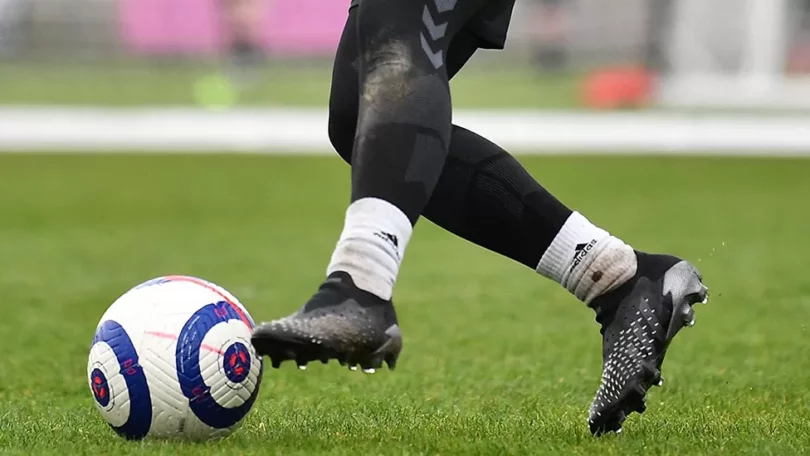KABUL (BBC) : A high-profile evacuation to the UK of Afghan female footballers fleeing the Taliban included a number of women who were not the top-tier players that it was claimed, a BBC investigation has been told.
Thirty-five women and their families – 130 people in total – were flown to the UK from Pakistan in November 2021.
Women footballers were seen to be at risk from the Taliban, and some feared they would be punished for participating in a sport the new regime viewed as un-Islamic.
They were granted visas by the Home Office. However, Newsnight has had access to the list of evacuees that was submitted to the British authorities in order to obtain entry to the UK.
While the names and other identity details are genuine, the description of the principal applicants as national players or members of a regional team – in some cases – appears to be false.
The BBC spoke to a number of former Afghan players, coaches and officials who identified 13 individuals who they believed were not members of the teams listed.
Many of the evacuees were described as members of the Herat Youth Team. But Newsnight tracked down the team’s former coach, Najibullah Nowroozi, who now works in women’s football in Italy.
He says that when he saw the list of people who were evacuated, he wondered if some of them had ever visited the Herat football ground, let alone played for the national team: “I have seen people in the list who have not even worn a football strip in Herat.”
There is resentment among genuine players now living under Taliban rule in Afghanistan, that others appear to have got out with false credentials.
One, who wishes to remain anonymous, tells Newsnight: “The Taliban have banned sports for women and girls… we are left behind in Afghanistan with no future. It just makes me feel very neglected and very sad because we are the real players and not some of those that got evacuated.”
Sabriah Nawrouzi is a former captain of the Herat Youth Team who was evacuated along with her team-mates Narges Mayeli, Sahar Chamran and Fatemah Baratean.
She now plays football in the north of England. While staying in a Pakistan hotel en route for the UK, she says she met some women for the first time, who claimed to be part of her team.
Ms Nawrouzi says that once in England, she had to split the evacuees into two teams, because “because one team couldn’t play football”.
The football evacuation took place in the months following the fall of Kabul and was personally championed by Priti Patel, the home secretary at that time.
The Home Office says the move demonstrated the UK’s commitment to helping at-risk Afghans resettle in the UK: “Their love of football put these women and girls at risk from the Taliban. We are proud that members of the Afghan Girls Development Squad and their family members were brought to safety in the UK.”
Siu Anne Gill ran the Rokit Foundation charity which was involved in bringing the footballers to the UK. She says the Home Office failed to check the credentials of the women footballers on the flight, relying instead on names provided by former Afghan international player and campaigner Khalida Popal.
Ms Gill said: “Khalida Popal personally had been including more names and more names and more names. We asked Khalida, ‘Did you check that these are footballers?’ She said ‘Yes, they’re definitely footballers.'”
Ms Popal runs a non-profit organisation called Girl Power which works to empower women through sport. She says she didn’t knowingly help non-footballers to claim asylum through the scheme, and told us that the Rokit Foundation had also removed and added others to the list.
Rokit accept that they added some names to the list, and that this was agreed between them and Ms Popal.
In a statement Ms Popal told Newsnight: “I categorically deny the allegations directed at me. I have repeatedly provided extensive evidence and explanations about why any suggestion that I had any formal role in verification and/or knowingly misled anyone about the identities of those evacuated is wrong.”
A Home Office spokesman says: “We worked with a number of organisations who identified and referred the group to us, undertaking security checks as part of the process. Should there be evidence that the information provided was incorrect, the Home Office will investigate.”







